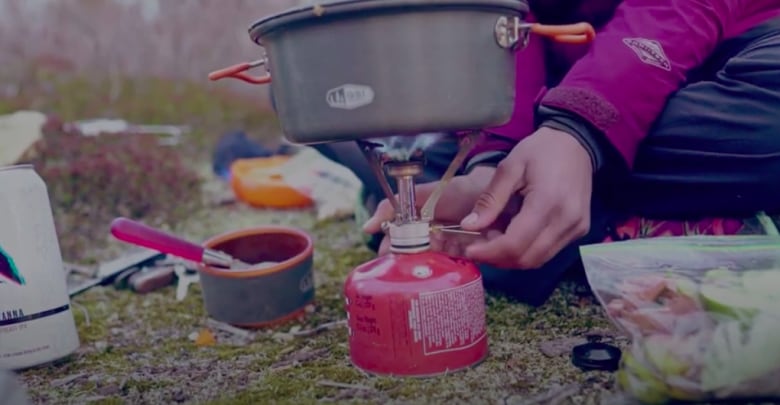From snacking to going doo-doo, here's how to go camping without leaving a trace
How to make the most of your camping trip, without leaving a trace!

With warmer days just around the corner, getting away and exploring the great outdoors is on everyone's mind these days. Environmentalist and outdoor guide Erinn Drage shares tips and tricks to successfully camping sustainably. These "Leave No Trace" camping trips are sustainable, and easy to remember and follow! Take a look at a few of Erinn's tips below.
Packing and hiking
Check, check, triple check and pre-prep
Carefully prepared meals and properly packing is another simple way to get the most out of your sustainable camping trip. Planning all meals out and only taking the gear you need will help ensure the lowest possible impact on the environment. Understanding the basics of environmentally conscious trail behavior is the easiest way to insure that the least amount of impact will happen to the natural environment.
Staying on track
Staying on the trail is important. Many feel tempted to stray from the trail when they come across non- desirable walking conditions, like swampy and muddy terrains. Although tempting, it is best to just come prepared with appropriate gear and stay on track.!
Stepping off track has the potential to damage the surrounding vegetation and enlarge the trail more than it is meant to be. Trails are built in a specific way for a specific reason, so try to stick to them as much as possible.

Filtration for hydration
It is important for anyone who is going hiking to bring a water-filtration device of some kind. Portable water filters are available, but also boiling your water is another way to filter out bacteria.
Prepare to leave nothing behind
It is important to make sure that you are leaving absolutely nothing behind that can disrupt the natural order of the environment you are visiting. Even biodegradable foods should be packed up in bags to be properly disposed of at the end of your travels.
Setting up camp
Setting up shop
If a pre-existing trail exists where you are camping, choosing an established route is the best choice for setting up camp. If none are available, try to choose a flat area, preferably rock, sand or gravel, to pitch your tent. Be sure to do research on the grounds you are staying on, as many sites do not have fires permitted for cooking or leisure. Knowing this in advance will help you prepare any equipment you may need for your cooking experience.

Post dinner tips
Try to avoid washing dishes in a still body of water. Try to wash any soiled and used dishes in a pot, and then disperse the water by burying or tossing it away from your campsite.
It is best practice to pack up all food once you are finished cooking and eating in a durable bag that can not be penetrated by critters or animals of any kind. Hanging all food from a tree, will keep your food far out of reach from any potential animals that may pass by the campsite.
Packing up and hiking out
Getting your gear packed up after an awesome camping trip is probably one of the most important steps!
Keeping food simple in the wilderness
Dehydrated food is a great way to cut back on food waste. It's great because you usually just have to add water to it, and as a plus, it doesn't go bad easily. Non-perishable foods work great, as they are easy to make, and also do not cause a lot of waste.
Act like you were never there
Ideally when you are packing up, you should leave no signs of your campsite behind, whatsoever. Be sure to check for any garbage or debris that may have flown away without you noticing. Don't hesitate to pick up any garbage that you may see left behind by other campers as well. If any vegetation has been displaced, be sure to put it back into its original home.
Taking care of...business
For women who are camping, there are many options for those who may be experiencing menstruation. One example is a menstrual cup, which is durable, causes no waste and can last for hours. Another option is to bring durable plastic that can contain any of your sanitary items that need to be disposed of.
When nature calls, there are certain no-trace ways to leave behind your Number 2. It is best practice to walk as far away from any water or the camp site to dig a toilet-hole. Once finished, cover the hole with dirt and leaves to try and make it look as natural as possible, and undisrupted.
Come as you are and leave it as you see it
Try to avoid taking plants or flowers home with you. Leave them for the next visitors to enjoy on their camping excursions as well. Try to avoid leaving behind any rock structures or any markings on trees that may confuse other campers trying to follow the marked trails.
Above all, the most important thing is to make sure you are remembering to have fun and enjoy your time in nature!
Click here for more scenes from spring across the country. Show us your spring with the hashtag #HelloSpringCBC